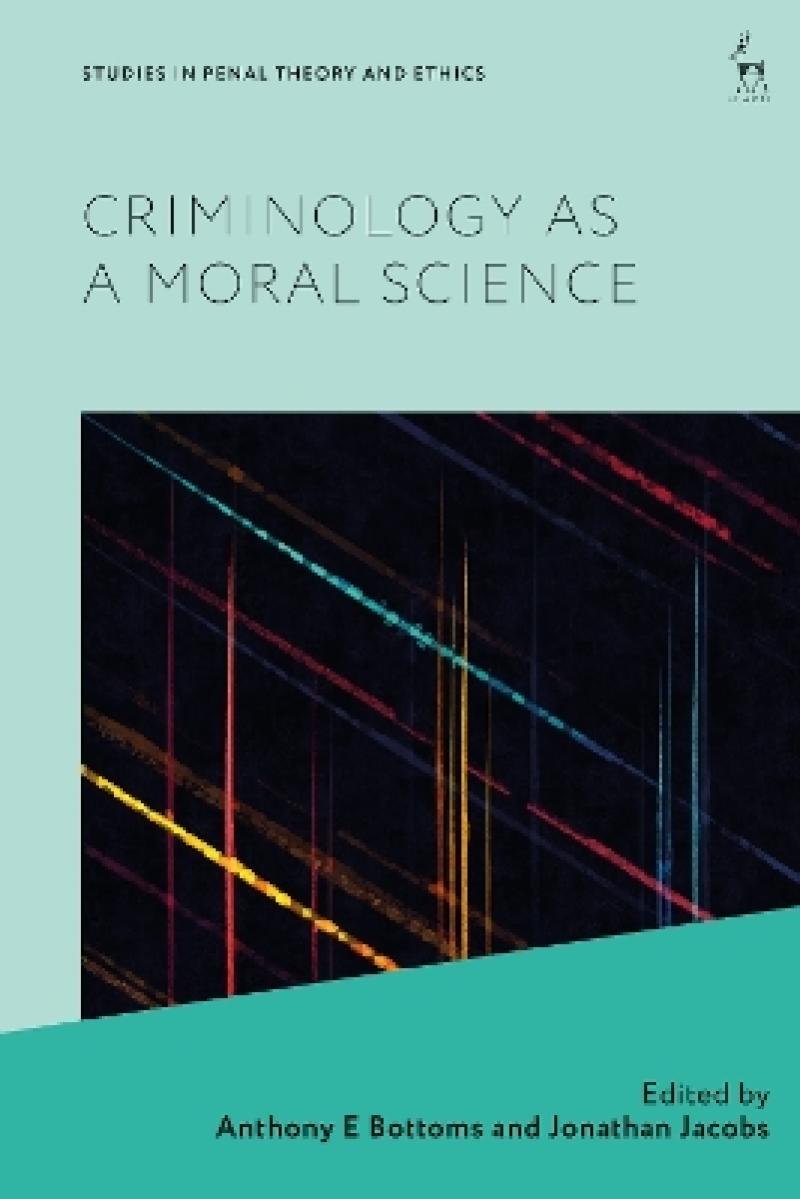This book proposes an explicit recognition of criminology as a moral science: a philosophically textured appreciation of the presence and role of values in people’s reasoning and motivation, set within an empirically rigorous social-scientific account. This endeavour requires input from both criminologists and philosophers, and careful dialogue between them. Criminology as a Moral Science provides such a dialogue, not least about the so-called ‘fact-value distinction’, but also about substantive topics such as guilt and shame. The book also provides philosophically-informed accounts of morality in practice in several criminological contexts: these include whistleblowing practices within a police service; the dilemmas of mothers about who and what to tell about a partner’s imprisonment; and how persistent offenders begin to try to ‘turn their lives around’ to desist from crime. The issues raised go to the heart of some currently pressing topics within criminology, notably the development of ‘evidence-based practice’, which requires some kind of stable bridge to be built between research evidence (‘facts’) and proposals for policy (‘evaluative recommendations’).
Les mer
Introduction: The Nature and Scope of a Moral Science, Anthony Bottoms (University of Cambridge, UK) and Jonathan Jacobs (City University of New York, USA)Part I: Orientations1. Criminology and Moral Philosophy: Prospects for Fuller Engagement, Jonathan Jacobs (City University of New York, USA)2. Implementing the ‘Moral Turn’ in the Social Sciences: Three Obstacles and Three Solutions, Christine Swanton (University of Auckland, New Zealand)Part II: Criminal Justice-Related Ethical Dilemmas3. Whistleblowing: An Ethical Analysis of Police Officers’ Reporting of Misconduct by Colleagues, Justice Tankebe (University of Cambridge, UK)4. Morality and Motherhood of (Ex-)Prisoners’ Children, Caroline Lanskey (University of Cambridge, UK), Lucy Markson (University of Cambridge, UK), Karen Souza (United States Sentencing Commission, USA), Sophie Ellis (University of Cambridge, UK), Friedrich Lösel (University of Cambridge, UK) and Jennifer Barton-Crosby (NatCen Social Research, UK)Part III: Moral Emotions: Shame And Guilt5. A Plea for Guilt, Sophie-Grace Chappell (University of St. Andrews, UK)6. Taking the Long View: The Role of Shame and Guilt in Desistance, Alice Ievins (University of Liverpool, UK)Part IV: Desistance From Crime: Analyses In Positive And Critical Morality7. ‘Yo, God, What Should I Do?’: Striving for Moral Consistency after Prison, Ryan Williams (University of Queensland, Australia)8. Ethical Aspects of Journeys towards Desistance by Male Young Adult Recidivists, Anthony Bottoms (University of Cambridge, UK) and Caroline Lanskey (University of Cambridge, UK)9. Living Non-Criminal Lives: What Role for the State? Matt Matravers (University of York, UK)
Les mer
This book proposes an explicit recognition of criminology as a moral science: a philosophically textured appreciation of the presence and role of values in people’s reasoning and motivation, set within an empirically rigorous social-scientific account.
Les mer
Revives the concept of a ‘moral science’ for serious contemporary use, and argues that criminology is of its nature a moral science
The series publishes cutting-edge work on penal theory and ethics – both broadly construed – and on their intersections. It is particularly open to approaches belonging to different intellectual traditions – whether analytical, comparative, or historical – and to interdisciplinary approaches. While the series’s emphasis is theoretical, it is hoped that many of its volumes will highlight some of the ways in which theoretical work relates to practical concerns.General Editor:Leo ZaibertEditorial Board: Vera Bergelson, Rutgers University, USASir Anthony Bottoms, University of Cambridge, UKLuis Chiesa, SUNY Buffalo, USAStephen de Wijze, University of Manchester, UKAntje du Bois-Pedain, University of Cambridge, UKMarkus Dubber, University of Toronto, CanadaStephen P Garvey, Cornell University, USADouglas Husak, Rutgers University, USAKimberly Kessler Ferzan, University of Pennsylvania, USAMatthew Kramer, University of Cambridge, UKNicola Lacey, LSE, UKYoungjae Lee, Fordham, USAAlison Liebling, University of Cambridge, UKNicola Padfield, University of Cambridge, UKJulian Roberts, University of Oxford, UKJesper Ryberg, Roskilde University, DenmarkEkow Yankah, University of Michigan, USA
Les mer
Produktdetaljer
ISBN
9781509965328
Publisert
2023-09-21
Utgiver
Vendor
Hart Publishing
Høyde
234 mm
Bredde
156 mm
Aldersnivå
P, U, 06, 05
Språk
Product language
Engelsk
Format
Product format
Innbundet
Antall sider
304
Biographical note
Anthony E Bottoms is Emeritus Wolfson Professor of Criminology at the University of Cambridge, UK.
Jonathan Jacobs is Director of the John Jay College of Criminal Ethics at John Jay College of Criminal Justice, City University of New York, USA.
